The Love Parade

Director: Ernst Lubitsch
Year: 1929
Rating: 8.0
Since Ernst
Lubitsch had come to Hollywood at the bidding of Mary Pickford in 1923 to
direct Rosalita, he had directed ten films. All silent. But in a cinematic
sense he had never really left Europe though he rarely went back. Of the
ten films, nine were set in Europe and five involved royalty which was very
popular at the time. He was one of the first German directors to leave and
find their way to America. Over the next ten years many were to follow, but
Lubitsch did not do it because of the rising tide of Nazism - this happened
long before that - though being Jewish I imagine he was very glad later on
- but because the German economy was a disaster. The Mark had gone from 8,000
to the dollar to a million to the dollar. Now he had a chance to earn dollars.
Pickford had decided that she needed a change of style and thought that Lubitsch
was a genius and the best director in Europe. They banged heads quite a bit
and Lubitsch with his lack of English and his thick accent had difficulties
in making people understand what he wanted. There was also still a large
prejudice against Germans because of the war that he had to overcome. Yet
he always found himself in demand during his silent pictures and had contracts
with United Artists, Warners, MGM and now with Paramount.
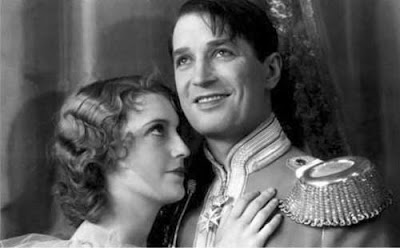
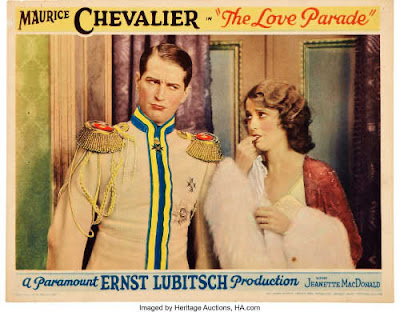
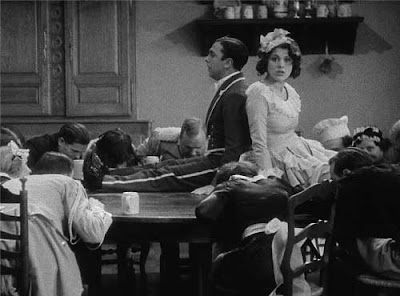

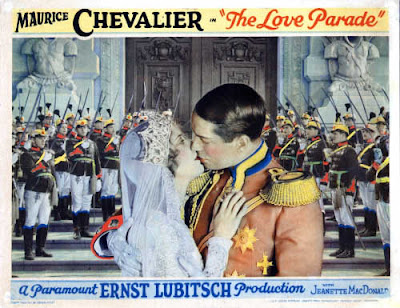
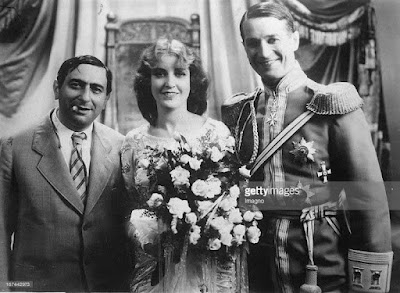 Lubitsch, MacDonald,
Chevalier
Lubitsch, MacDonald,
Chevalier







